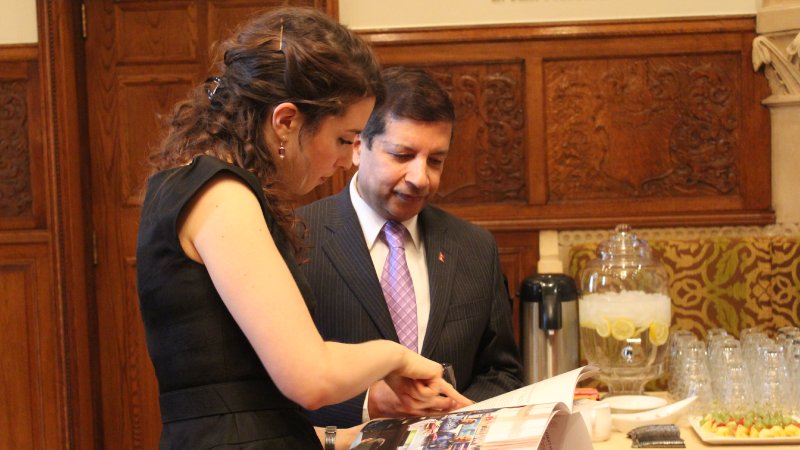
-
HOME
-
WHAT IS STANDOur Mission Our Values Our Help Contact
-
WHAT WE FIGHT FORReligious Freedom Religious Literacy Equality & Human Rights Inclusion & Respect Free Speech Responsible Journalism Corporate Accountability
-
RESOURCESExpert Studies Landmark Decisions White Papers FAQs David Miscavige Religious Freedom Resource Center Freedom of Religion & Human Rights Topic Index Priest-Penitent Privilege Islamophobia
-
HATE MONITORBiased Media Propagandists Hatemongers False Experts Hate Monitor Blog
-
NEWSROOMNews Media Watch Videos Blog
-
TAKE ACTIONCombat Hate & Discrimination Champion Freedom of Religion Demand Accountability
Corporations Are Making Religious Diversity a Reality
The 21st century has seen a steady rise in Diversity, Equity and Inclusion (DEI) programs. And now, America’s corporations have been developing proactive programs to encourage religious diversity.
As Kathryn Post reported for Religion News Service, “A growing contingent of businesses have begun talking about religion as an asset, rather than a divider.”

Large corporations (the most likely targets for lawsuits) might have started building religious diversity programs as a shield from accusations of bias. And that kind of risk-management is possibly still a very good reason.
But going beyond legal guideposts, Ms. Post points out that there are many genuine efforts. For example, paying attention to dietary restrictions in company cafeterias. Creating “floating” holidays so that employees can choose to celebrate their own faith’s holy days.
And to make up for what one’s high school might not have taught in the first place, there’s religious literacy training. Chaplains, too, are on hand to comfort and assist.
The enlightened self-interest of corporate sponsors can’t help but further enlightenment itself.
As Ms. Post reports, companies like Texas Instruments that invest in “conscious hospitality” toward various faiths are repaid in the long term, because people who would feel unwelcome elsewhere can openly display their religious affiliation.
When they do this, corporations are creating beachheads of tolerance and respect that then play out in the community at large. For example, the idea of opening a Starbucks at 4 a.m. to enable Muslims to catch their last pre-fast cup of coffee makes financial and community sense. So the enlightened self-interest of corporate sponsors can’t help but further enlightenment itself.

As we return to normalcy, it’s important to restore the “beachheads of tolerance and respect” that may have frayed when we went through social distancing and remote work.
And now, we can add a whole new layer of religious diversity by looking at how it applies in the remote workplace. For example, while the Church of Scientology has always had online extension courses, these have blossomed since 2020. I like to put in some time to study the scripture of my religion each morning before getting to work in the home office, and for me, this contributes important awareness and serenity to my day.
A tremendous amount can be done remotely and the resources to do this get better all the time. People are hungering for answers. And over the centuries, these answers have come from religion.
“When people feel more included they will have better chances to thrive and to stay.”
It will be interesting to see how corporations enable, for example, chaplain services via Zoom. In the end, religious diversity will exist uninterrupted, whether we return to the office, or continue to “Zoom it in”—or both. But no matter where people work, research shows that religious hospitality is good for business.
As Google’s global diversity and inclusion lead Tomas Flier said in an interview with Deseret News, “From a business perspective, we know that when people feel more included they will have better chances to thrive and to stay.”

And research by the Martin Prosperity Institute (MPI) found that religious diversity is linked to the overall productivity and economic competitiveness of nations. It makes sense that this would work, too, in the smaller, reflecting pool of corporations, which represents a microcosm.
In all, religious diversity is moral, fair and a driver of overall happiness and prosperity—a goal we all share in our evolving modern world.









